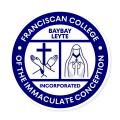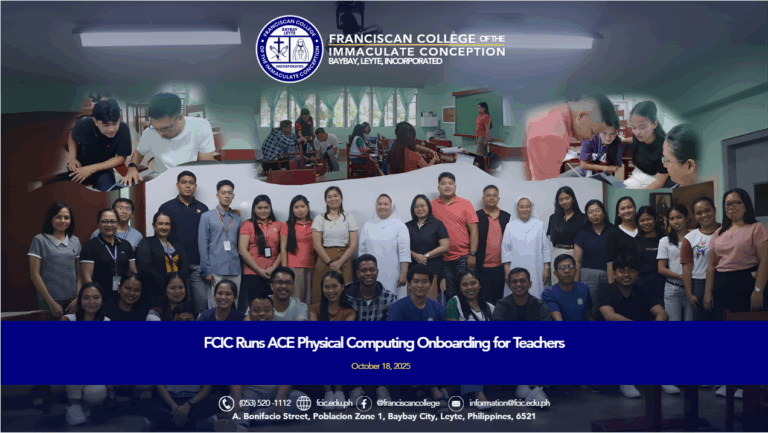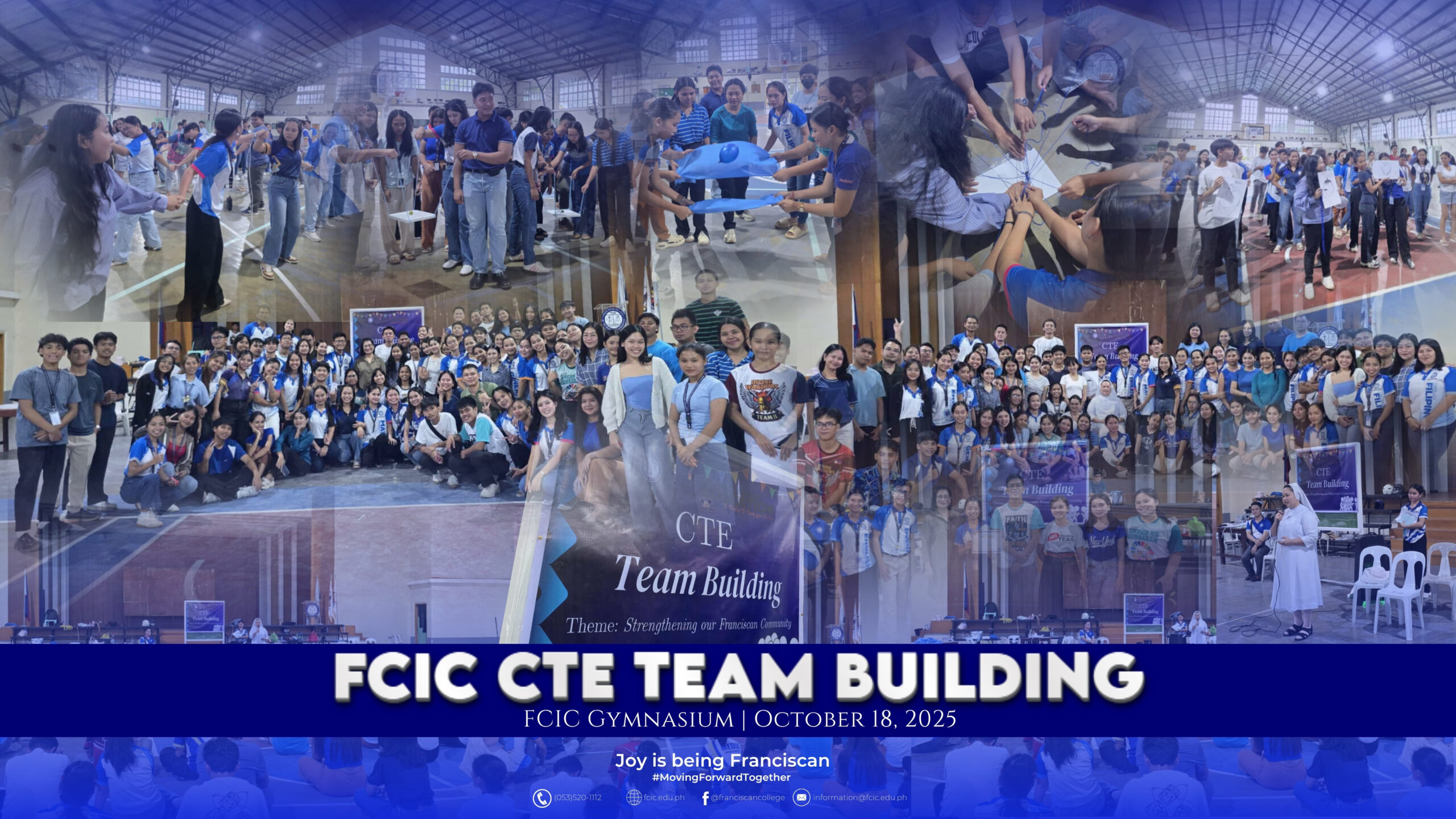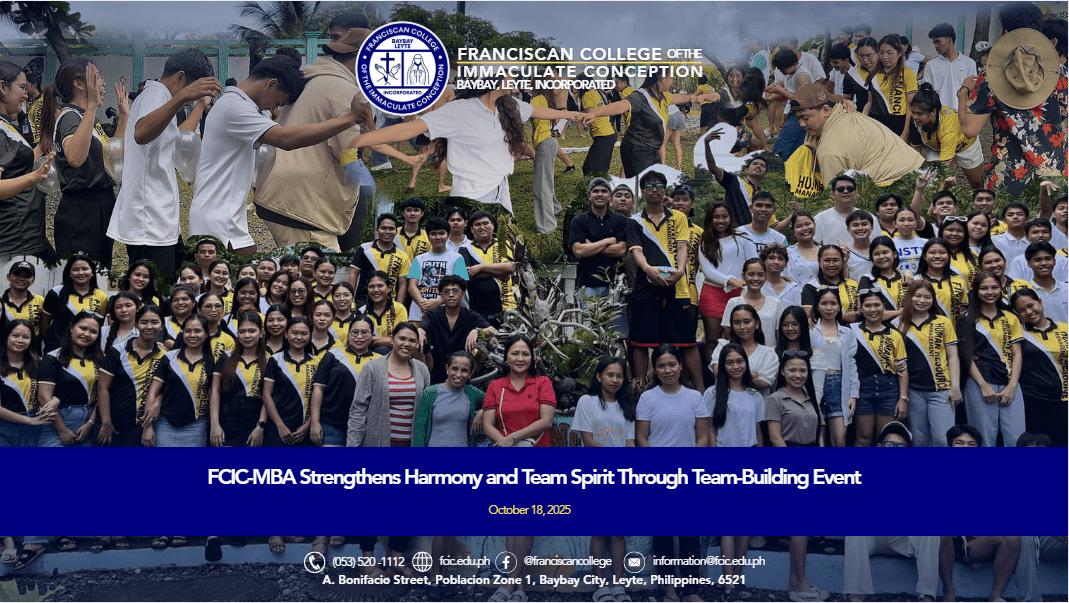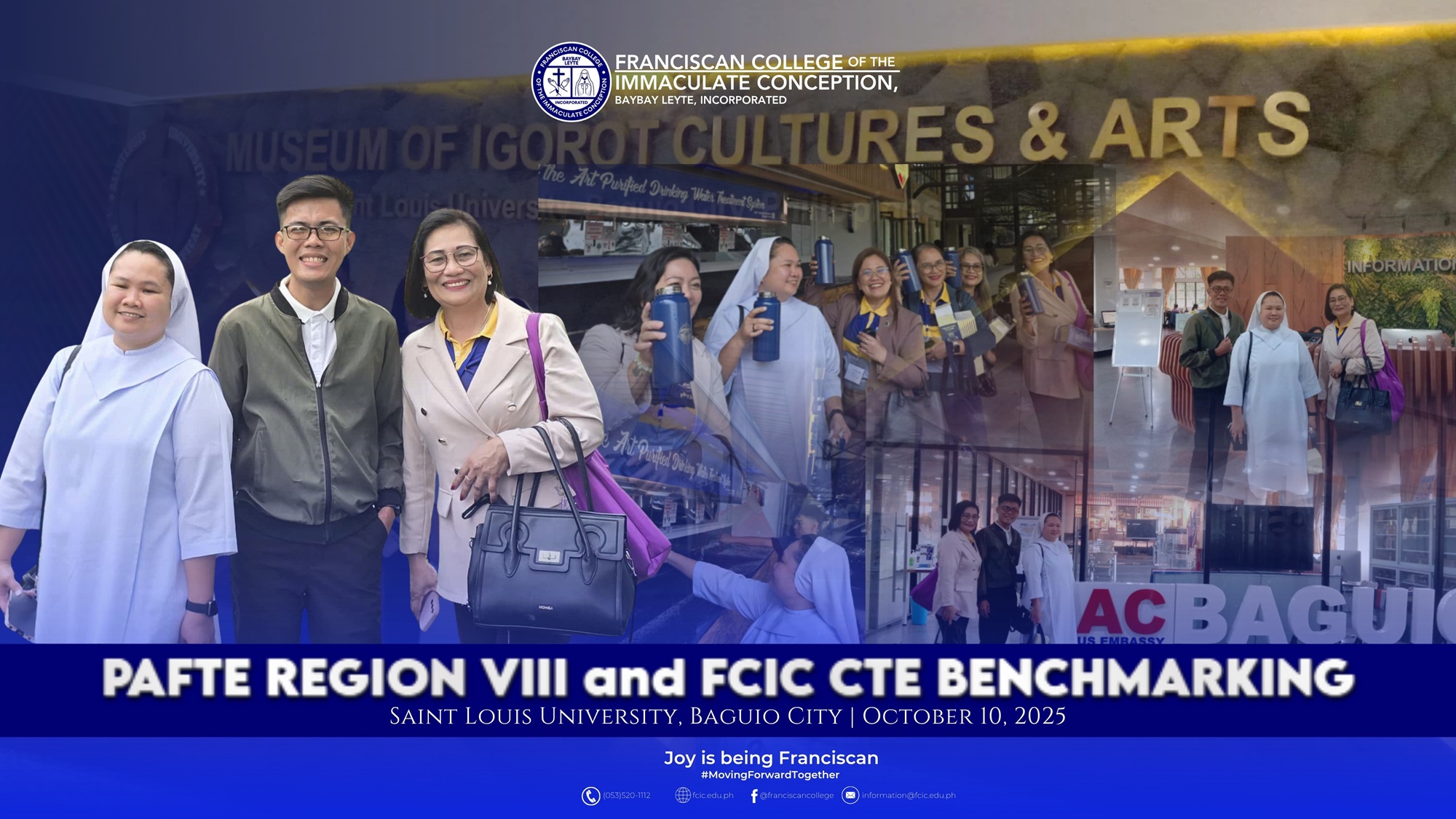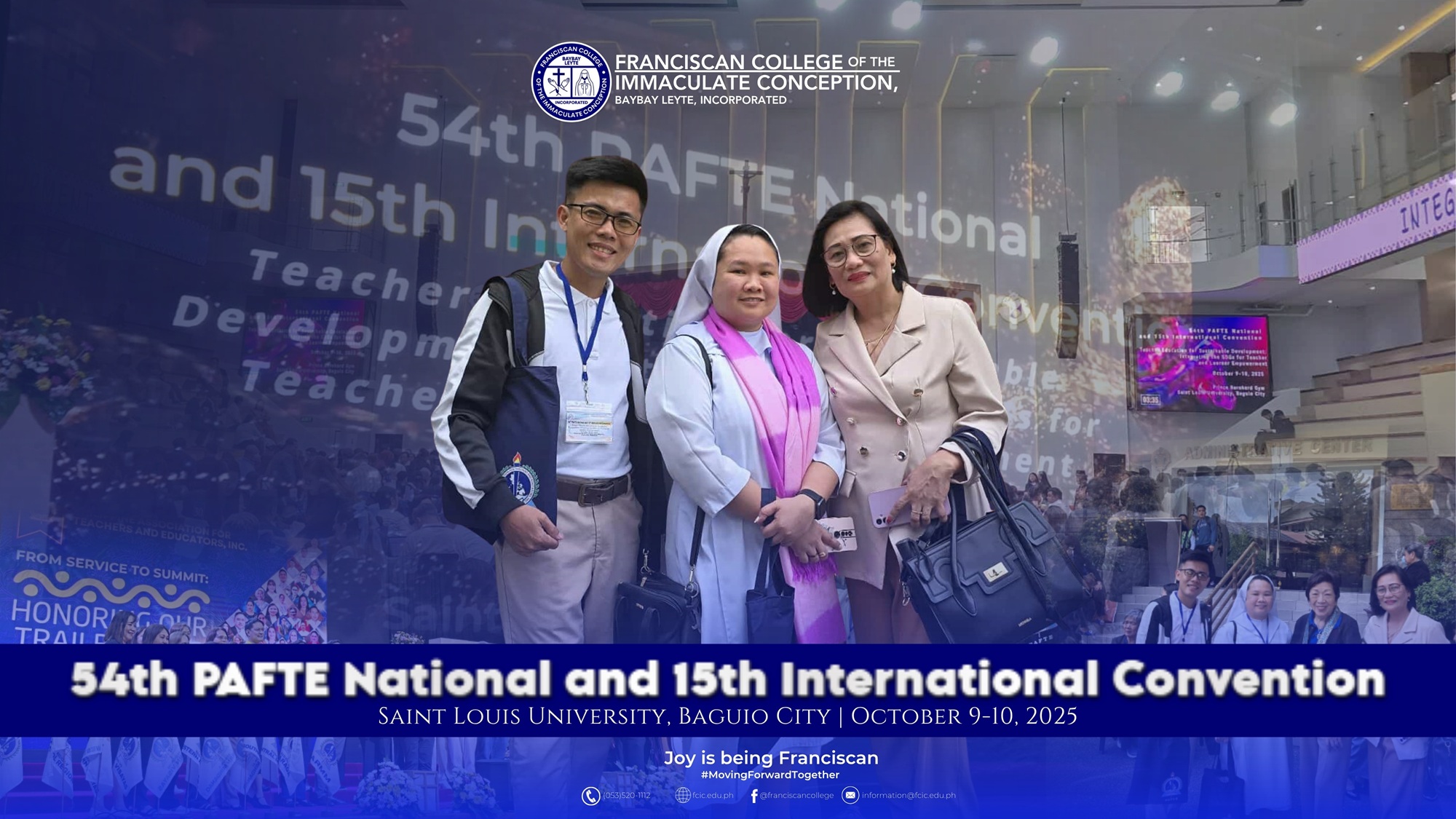The one-day onboarding equips teachers to design interdisciplinary, code-powered projects that progress from software to tangible builds aligned with Franciscan formation.
ARTICLE:
On October 18, 2025, at 8:00 a.m., the Franciscan College of the Immaculate Conception (FCIC) held a one-day onboarding session on Aralinks Coding Education (ACE) physical computing in FCIC – C3 Room. Attended by some administrators and faculty members from Grade School and High School, the session was led by Resource Speaker NoemiAnn Quiam, along with Operations Lead Jamilla Alvarado, Supervisor Kenneth Humawid, and the technical training team composed of Aaron Carinaga, Rytes Reyes, Sarah Joy Yap, Jay Boy Metante, and Gecille Campecino. FCIC ACE Facilitator Kim Cabodbod supported the activities, while Ms. Jenny Vabe Dayon served as emcee. School President Sister Mary Michael G. Bactong, OSF, Ph.D.Ed, delivered a welcome message and observed the training throughout. The theme was “Build with Code: Creative Problem-Solving with Physical Computing.”
The morning covered preliminaries and an introduction to physical computing, clarifying the training goal to design engaging project challenges that integrate coding skills and subject knowledge for interdisciplinary learning and computational thinking. Facilitators explained input–process–output systems using sensors, actuators, and microcontrollers, and discussed how physical computing experiences can support classroom management by enabling purposeful interactivity. Trainers outlined the staged ACE pathway: coding foundations, software artifacts in Quarter 2, and tangible builds in Quarter 3 using age-appropriate platforms and kits: ScratchJr. (Grades 1–2), Scratch (Grades 3–4), mBlock (Grades 5–8), MIT App Inventor (Grades 9–12), and invention kits including littleBits, Scratch, Makey Makey, micro:bit, Arduino, and Raspberry Pi. Invention kits for respective grades were available on-site for hands-on use.
Teachers then explored computational artifacts at the ACE Playground with ACE Phoenix, discussing how student-built inventions from partner schools address community needs. Breakout groups revisited core coding concepts and mapped physical computing components: platforms, sensors, actuators, and power supply, as the basis for classroom integration. During guided planning, teams drafted ACE Challenge Statements using the GRASPS framework (Goal, Role, Audience, Situation, Product, Standards) and outlined project paths covering launch, observe/brainstorm, build phases, assess checks, and a Present stage at ShowcACE/Playground.
In the afternoon session, teachers completed guided imitation builds based on facilitator demonstrations and presented working project plans during a working break. The Resource Speaker evaluated feasibility, interdisciplinary integration, and assessment alignment to strengthen implementation in the next quarter. Digital Certificates of Commendation were awarded to project-plan presenters by Sister Mary Michael G. Bactong, with tokens presented by School Principal Ms. Blanchie G. Torcino, MAEd, to the Resource Speaker.
The activity affirmed alignment with FCIC’s vision of “A Christ-centered academic institution, providing quality transformative Franciscan Education.” Next steps include finalizing challenge statements, aligning rubrics, and scheduling ShowcACE presentations in the coming quarter to showcase student computational artifacts addressing real-world needs. This will allow students to demonstrate their understanding of computational thinking and problem-solving skills in a real-world context. Additionally, it will provide an opportunity for students to receive feedback from industry professionals and peers to further enhance their projects. Though the one-day onboarding has ended, its lessons move directly into classroom practice. FCIC and its partners commit to deepening interdisciplinary coding education and physical computing, drawing on faith, service, and perseverance to advance meaningful learning and community impact
By: Jedd Anghag, LPT
Contributor: Mr. Kim Cabodbod
